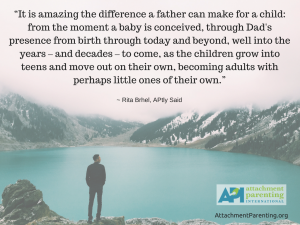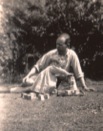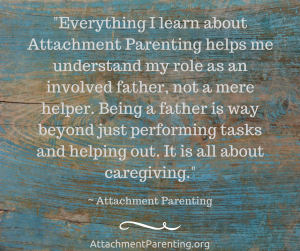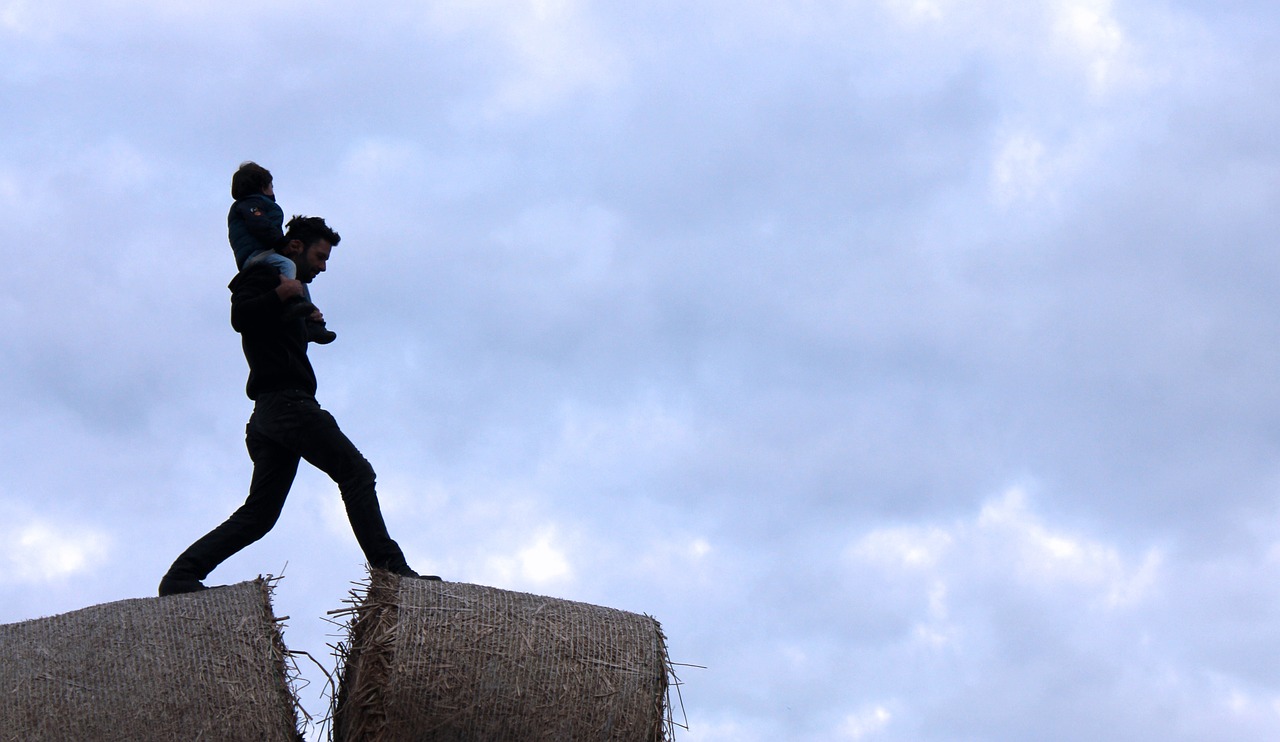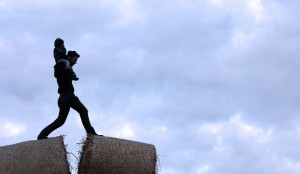API knows many gems of local parenting support leaders. This Father’s Day, I’m excited to introduce you to Thiago Queiroz–a father who has been absolutely on fire for supporting parents in his native Brazil since his oldest of 4 children were born 8 years ago.
Many parents have been able to “meet” Thiago through his part in the American documentary, Dads. Directed by Bryce Dallas Howard, daughter of Hollywood film director, Dads illustrates what she refers to as contemporary fatherhood, asking celebrities and everyday men what being father means to them. Premiered at the 2019 Toronto International Film Festival where it was named second runner-up for the People’s Choice Award for Documentaries, Dads released in 2020 on Apple TV+.
Thiago is passionate about supporting parents, but especially fathers. We congratulate him on his work in normalizing nurturing among fathers through his portrait on Dads. Let’s get to know Thiago a bit more:
Q: To begin, please share about your family:
A: I’m married to Anne, and we now have 3 kids: Dante (8 years old), Gael (6 years old), Maya (2 years old), and my wife is also pregnant again. The baby is called, Cora and she’s expected to be born by the end of the year.
I’ve been an API Leader for around 8 years here in Rio de Janeiro, Brazil.
Q: What brought you to API?
A: When my first son was born, I was feeling a bit lost, trying to understand how I could raise my child. My own parenting references were not of the attached kind, and the only thing I felt was that I wanted to do it differently with my child.
Related: Fatherly pushes for universal paid paternity leave, provides resource for U.S. dads
Also, for being a father in Brazil, I didn’t have any references of fathers who were actually involved in raising their kids, because our society only expects moms to really take care of their kids, while the dads are seen as unable to take care of a baby. That didn’t make any sense for me at that time (and still doesn’t), so I started researching different views on child rearing.
Gladly, I found API and getting to know [API’s 8 Principles of Parenting] was one of the best things that happened to me, because I started to understand how we can build strong emotional bonds with our children and more important: I understood how I, as a father, could do so many things with my baby toward a strong secure attachment.
Afterwards, I started helping API, so I translated its Principles into Portuguese and became a leader.
Q: So, how did you learn about the Dads film and come to be part of its cast?
A: Back in 2017, I received an email from the production team, which was interested in getting to know different dads around the world, for a new documentary on fatherhood they were going to work on. I honestly didn’t know much about the project itself, but since one of my missions is to advocate for responsible and attached fatherhood, I offered myself to help in any way I could.
I never heard from them again until mid-2018, when they sent me another email saying they really wanted to film my story and were going to fly a crew down to Brazil to film me and my family.
From that point on, everything was just too fast: They arrived one week later, because they were in a hurry to finish the documentary. There was only one story left to film, which was my story, because one of the stories they filmed (also from a Brazilian dad) didn’t actually work out and had to be removed from the film. So, yes, everything was just too fast!
Q: What was it like for your family to be included in Dads?
A: We’ve never participated in anything like that, so everything was new to us. The crew spent a whole weekend here with us, filming us and interviewing me and my wife. Even though we had a lot of people here, they were so professional we barely noticed them filming our daily routines.
So it was normal life for us, waking up Saturday, getting kids breakfast, taking care of our children, playing with them until I could put them in bed, so most of the time the crew was quietly shooting our normal activities.
I also host a fatherhood podcast with a couple friends (it’s called Tricô de Pais), so the crew filmed a recording session of my podcast, which was really nice, too.
On Sunday, they filmed a bit more of our routines and started the interviews with me and my wife, which was very funny because here only me and my wife speak English, not the kids, so they were really amazed in having all the different people with us, speaking a weird language.
It was an amazing experience!
I still didn’t know much about the project, because I only wanted to help promote an attached fatherhood. So only Sunday night, the producers showed me a bit about the documentary and only then I realized it was a huge thing – a film directed by Bryce Howard and with Will Smith on the casting. We were totally blown away with that and really happy to see how far the message of a more loving fatherhood could be spread.
Q: What are your thoughts about Dads as a film?
A: I think the film is extremely important in today’s society. We need to have more examples and role models for diverse and loving fatherhoods (yes, in plural!). Fatherhood is not a simple thing and being able to show the world how different men can care and love their children is not only important but urgent.
Q: What responses have you received from others who’ve viewed Dads?
A: The responses were amazing. I keep receiving messages from dads all over the world on my Instagram page (@paizinhovirgulaoficial), saying they learned a lot and also cried a lot watching my story on the film. It’s so important to have this feedback, because those similar experiences are exactly what connect us.
Related: Dads, talk about being a father
So having a mainstream documentary on fatherhood is a huge thing, especially when this documentary takes the subject very seriously, not portraying fathers as buffoons or mothers’ helpers.
Q: What is it like to challenge the status quo of fatherhood in Brazil?
A: It’s very challenging, because people around me, especially men, don’t understand why I should be taking care of my kids so closely and lovingly if “there’s already a mother doing this.”
Related: Tips for new fathers in bonding with their newborns
We live in a society which has a strong “macho” culture, so it’s difficult to find peers who understand the importance of creating strong and safe bonds between fathers and children.
Q: So, what tips can you offer men to rise to this challenge of choosing to be nurturing fathers?
A: My tip is, look out for other men like you. We might not be many yet, but we really need to get together and start talking about toxic masculinity, for instance, and how it affects the way we parent our children.
Related: Dynamics of disappearing dads with Meryn Callander
Being a nurturing dad is the best gift you can give to your child, but also to yourself, your wife, and society. Let’s find our peers and overcome these challenges, inviting other men to reflect on this, too.
Q: Thank you so much, Thiago, for your time and insights! Is there anything else you’d like to share?
A: Please watch Dads, and if this film touched your heart and makes sense to you, I suggest watching The Mask You Live In [directed by Jennifer Siebel Newsom], which is another documentary on manhood. It’s impossible to become truly a nurturing dad without rediscovering yourself as a man.

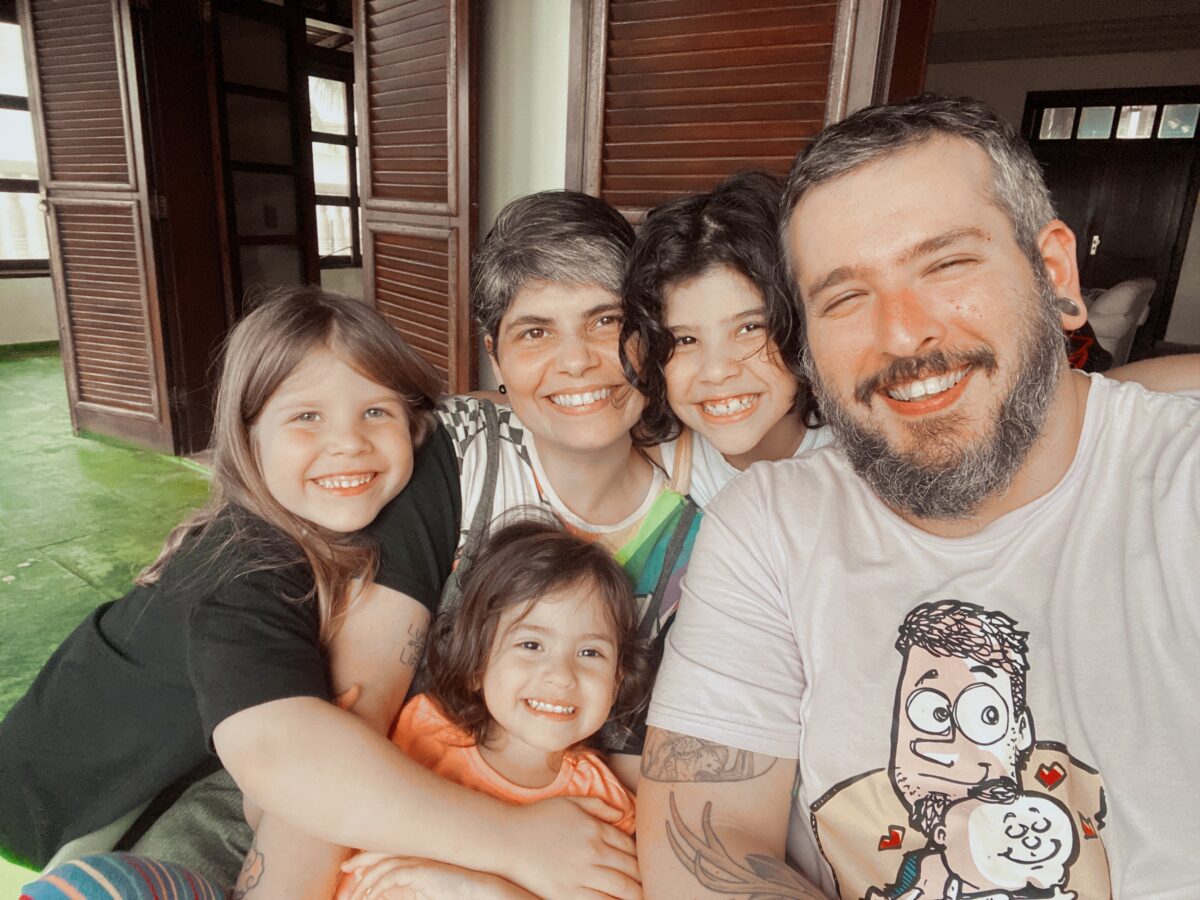
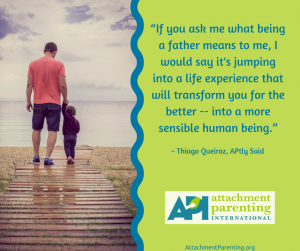 The vast majority of developed nations in the world
The vast majority of developed nations in the world 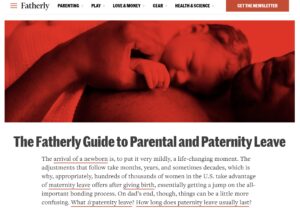 Universal paid paternity leave is part of that missing support, and Fatherly has organized an impressive resource, “
Universal paid paternity leave is part of that missing support, and Fatherly has organized an impressive resource, “

